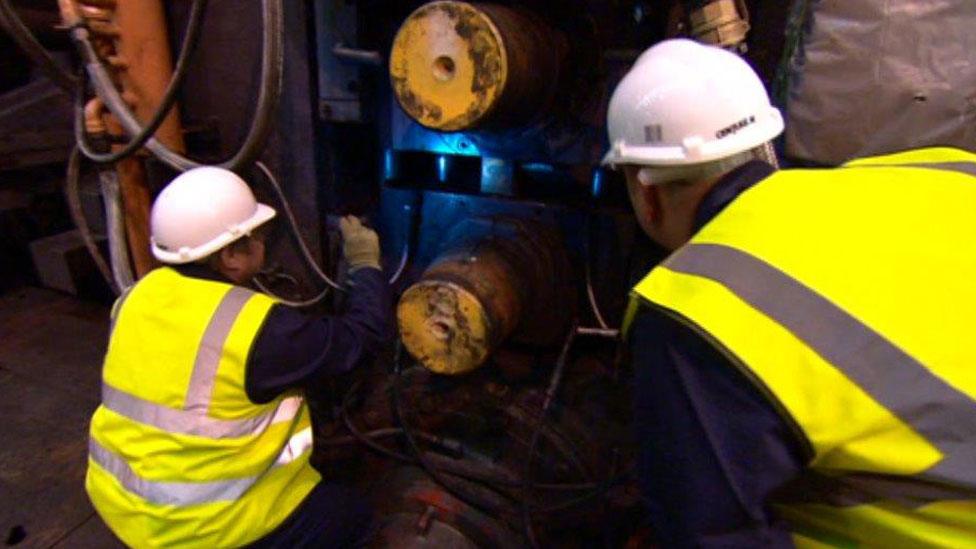Tata Steel 'set to cut 1,200 jobs'
- Published
1,200 jobs are expected to be lost at Tata Steel's plants in Scunthorpe, Clydebridge and Motherwell
Tata Steel is to announce 1,200 UK job cuts next week.
The firm is expected to significantly reduce the workforce at its Scunthorpe steel plant, which employs 4,000 people and is one of the UK's biggest.
Tata may also cut jobs in Scotland, at Clydebridge in Cambuslang and Dalzell in Motherwell.
The company declined to confirm the job cuts, but said it had been facing challenges in the UK such as a surge in steel imports, and the strong pound.
A spokesman said: "We've made a number of structural changes to our UK business over the last months and years to make us more competitive. Like all companies we continue to review the performance of our business."
Tata employs about 17,000 people in the UK.

'Life changing'
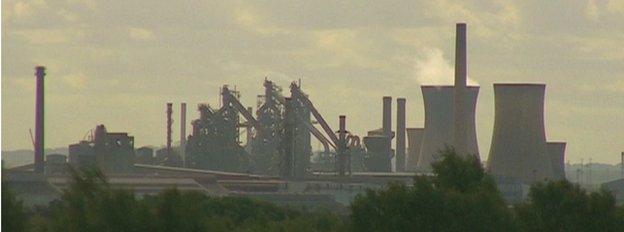
By Phillip Norton, BBC News reporter in Scunthorpe
The Tata steel works is at the very heart of this community. For generations, the night sky has glowed over Scunthorpe, illuminated by the production of molten metal below.
There's concern here not only for the plant which dominates the northern Lincolnshire skyline, but for all the businesses and industry which feed into, and rely on Scunthorpe steel. One man told me that without steel, the town would be crippled.
Wives, mothers, brothers and husbands - almost everyone in this town knows someone connected to the plant. "If this announcement comes true," one shopper said, "It will be life changing for Scunthorpe."
But there has also been a feeling of reluctant acceptance - that since the closure of the Redcar plant was announced, bad news may have been lurking on the horizon for Scunthorpe.
The question now is just how bad that news could be for steel production in this town. And just how Scunthorpe will cope with the blow.

'Crisis point'
Tony Gosling, a steelworker in Scunthorpe and a Labour councillor, said the job cuts would be "absolutely devastating".
"This area is still heavily dependent on the steel industry - a lot of the other small manufacturing companies all rely on it," he said.
It is the second blow to the UK steel industry this week and follows SSI's decision to close its blast furnace and coke ovens in Redcar.
Unions have called on ministers to take urgent action to save the UK steel industry, while John Cridland, CBI director-general, called on the government to work with businesses on a long-term industrial strategy.
Unite assistant general secretary Tony Burke said the steel industry was at crisis point.
"Ministers need to start by keeping the coke ovens at Redcar burning and supporting the wider steel industry through these turbulent times, so that British industry can benefit from major infrastructure projects, such as HS2," he said.
Roy Rickhuss, general secretary of the Community union, said it would seek talks with Tata Steel to discuss ways that jobs could be saved.
"This is yet another blow to our steel communities and demonstrates the precarious state of the UK steel industry and emphasises the need for government action," he said.
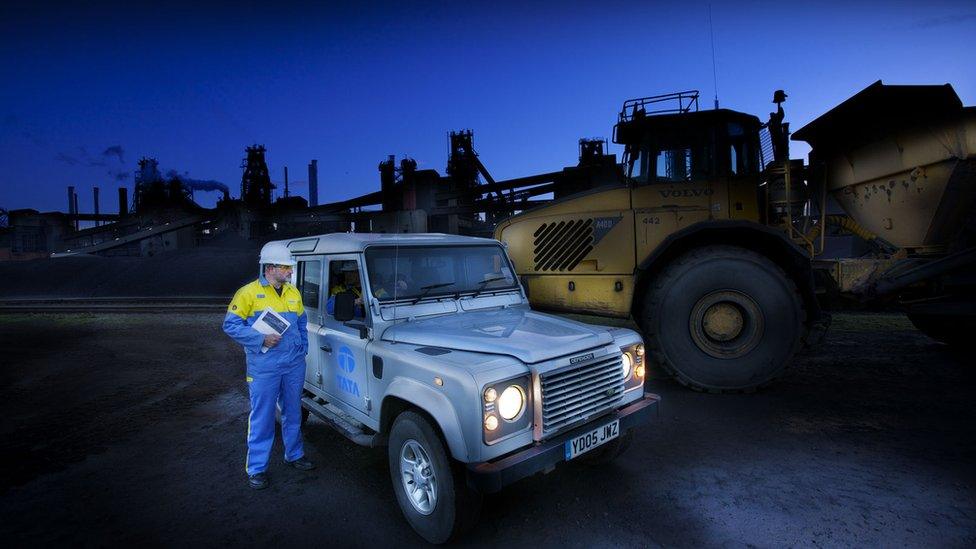
Business Secretary Sajid Javid chaired a steel summit involving unions, business leaders and ministers in Rotherham on Friday that was organised following the SSI closure.
Mr Javid said that the steel industry globally was facing one of the most difficult times in its history.
"There is no magic bullet and we can't change the price of steel, but we can forensically work through all of the challenges we know the industry is facing to see what solutions there might be," he said.

Analysis
By John Moylan, BBC industry correspondent
The crisis in the steel industry is the first major test of the government's industrial policy.
Ministers are under pressure to intervene and for many, Friday's steel summit won't go far enough.
The government blames the dramatic collapse in global steel demand and prices.
However, the industry points to issues closer to home - high energy prices and crippling business rates - where the government could help.
If it doesn't, they fear the tide of job losses will continue.

Gareth Stace, director of UK Steel, said: "There is very little time before we start to see more job losses and companies facing intolerable pressure."
"We are cautiously optimistic that the urgent recommendations we have made - from compensation to cut the cost of energy to tackling unfair dumping of steel by China - are all now at the top of the Secretary of State's to-do list."
Sale talks
Tata had been in talks for more than a year about selling the Scunthorpe plant to the Geneva-based Klesch Group until they collapsed in June.
Its chief, Gary Klesch, told the Financial Times that he abandoned the deal because the UK government had taken no steps, external to stop Chinese companies dumping cheap steel on the UK market.
"No one seems to care ... If it was important to [the government] to ensure those jobs were saved they would figure it out."
- Published16 October 2015
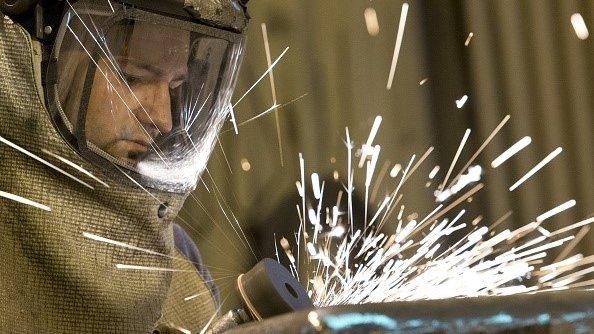
- Published16 October 2015
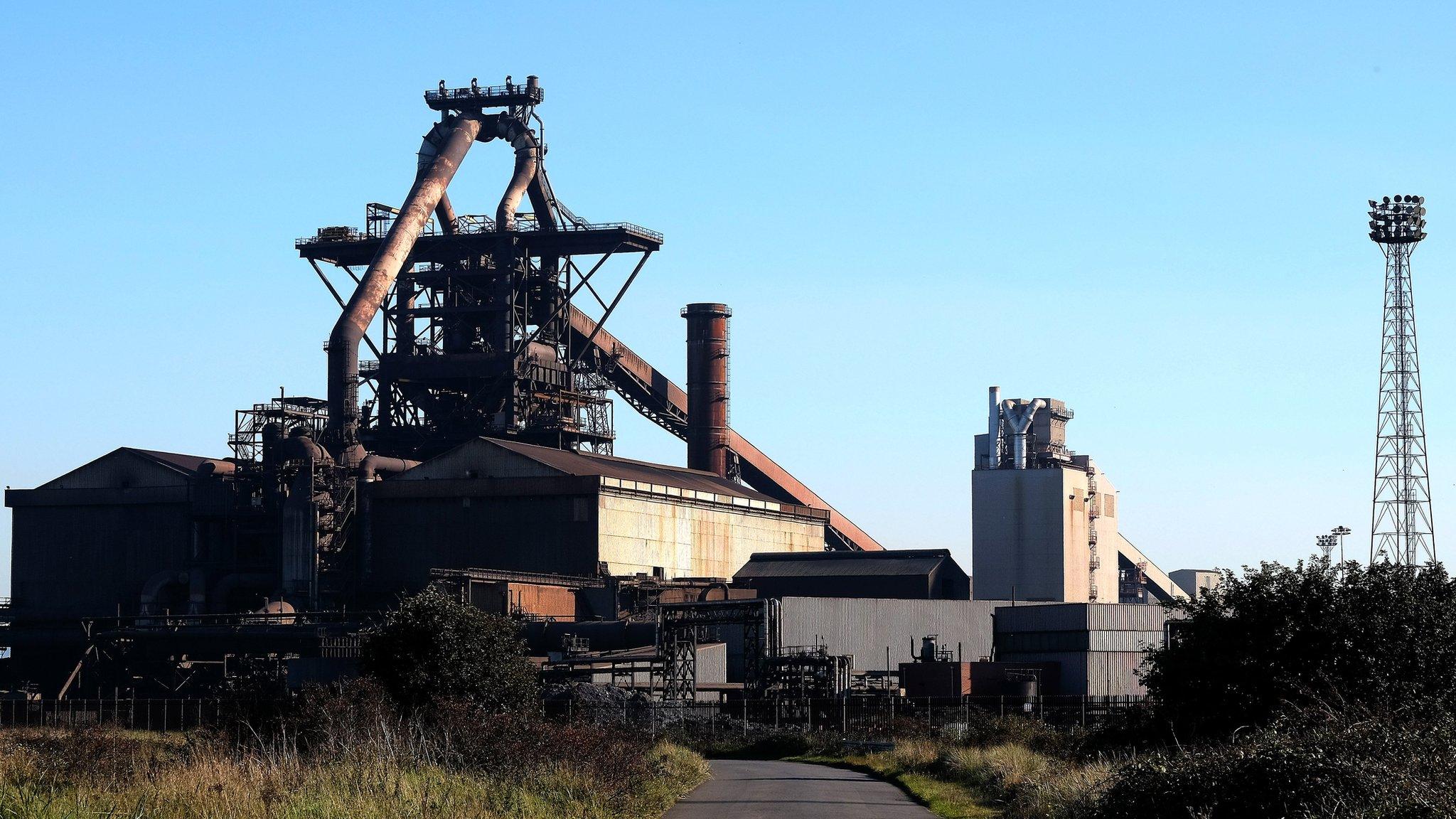
- Published16 October 2015
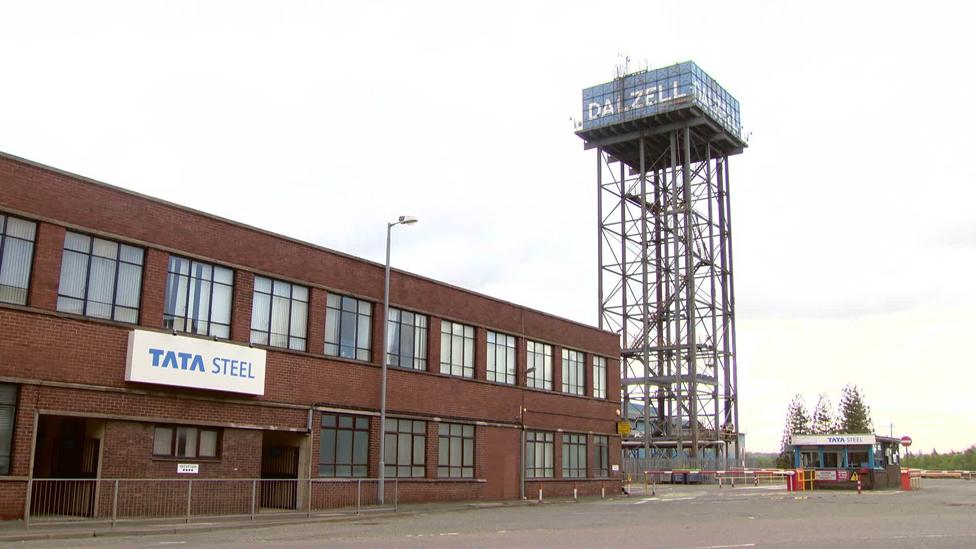
- Published16 October 2015
